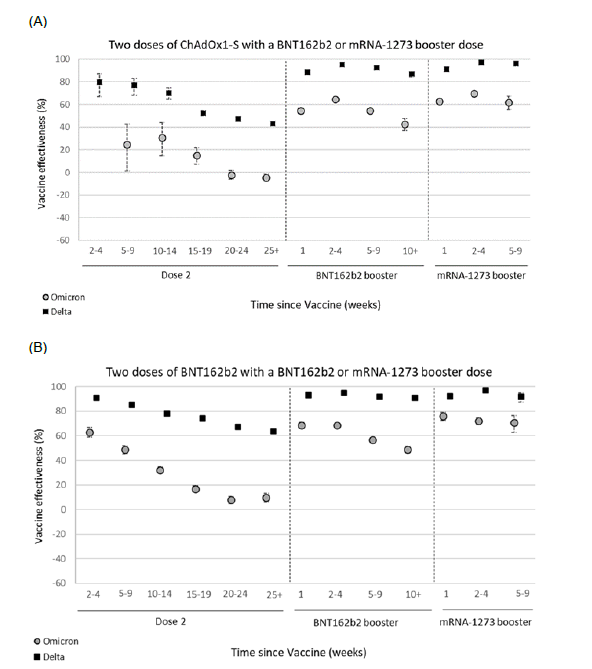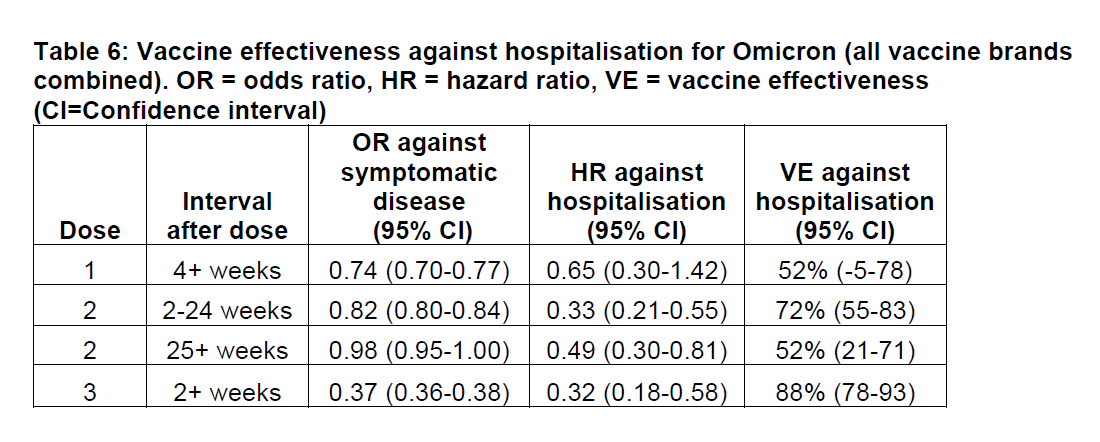KUALA LUMPUR, Jan 3 – A Covid-19 vaccine booster can reduce the risk of hospitalisation for people infected with Omicron by up to 88 per cent, two weeks after an mRNA booster dose is administered, according to the latest data by the UK Health Security Agency (UKHSA).
The real-world study by United Kingdom health authorities and Cambridge University’s Medical Research Council (MRC) Biostatistics unit published last Friday found that one vaccine dose is 52 per cent effective at preventing hospitalisation from the Omicron coronavirus variant, while two doses were 72 per cent effective between two and 24 weeks after the second dose.
However, the effectiveness of the two primary doses against hospitalisation waned to 52 per cent 25 weeks after the second dose.
An mRNA vaccine booster dose of either Pfizer or Moderna was able to significantly raise protection against hospitalisation from Omicron to 88 per cent two weeks after the shot.
The UKHSA study — which analysed 528,176 Omicron cases and 573,012 Delta cases from November 22, 2021 to December 26, 2021 in England — noted that while further data is needed to estimate the duration of protection against hospitalisation for Omicron, experience with previous variants suggests that this will be sustained longer than protection against symptomatic disease.
In terms of protection against symptomatic Covid-19 disease with Omicron, the UKHSA report said the effectiveness of a booster dose dropped from 65 to 75 per cent between two to four weeks, to around 55 and 70 per cent at five to nine weeks, and 40 to 50 per cent 10 weeks after the booster.
Among those who had received two doses of AstraZeneca’s vaccine, there was no effect against symptomatic disease from Omicron 20 weeks after the second dose. Among those who received two mRNA vaccine doses of Pfizer or Moderna, effectiveness dropped from 65 to 70 per cent to about 10 per cent by 20 weeks after the second dose.
The UKHSA’s study on vaccine effectiveness looked at primary courses of AstraZeneca, Pfizer, and Moderna, as well as booster doses of Pfizer and Moderna for AstraZeneca and Pfizer primary courses. In all periods, vaccine effectiveness against symptomatic disease was lower for Omicron compared to Delta.

The study also found that the risk of presentation to emergency care or hospital admission with Omicron was half of that for Delta, with the risk of hospital admission alone with Omicron being one-third of that for Delta, adjusted for vaccination status among other factors.
Susan Hopkins, chief medical adviser at UKHSA, said the analysis was in keeping with other encouraging signs on Omicron, but said the health service could still struggle with such high transmission rates.
“It remains too early to draw any definitive conclusions on hospital severity, and the increased transmissibility of Omicron and the rising cases in the over 60s population in England means it remains highly likely that there will be significant pressure on the NHS in coming weeks,” she said, as quoted by Reuters.
The World Health Organization (WHO) also warned that it is too early to conclude Omicron is milder than past Covid variants. WHO’s incident manager for Covid-19 Dr Abdi Mahamud said Omicron has mostly infected younger people so far who generally develop less severe disease.
“We all want this disease to be milder, but the population it affected so far is the younger. How it behaves in the elderly population, the vulnerable — we don’t know yet,” Mahamud said.








